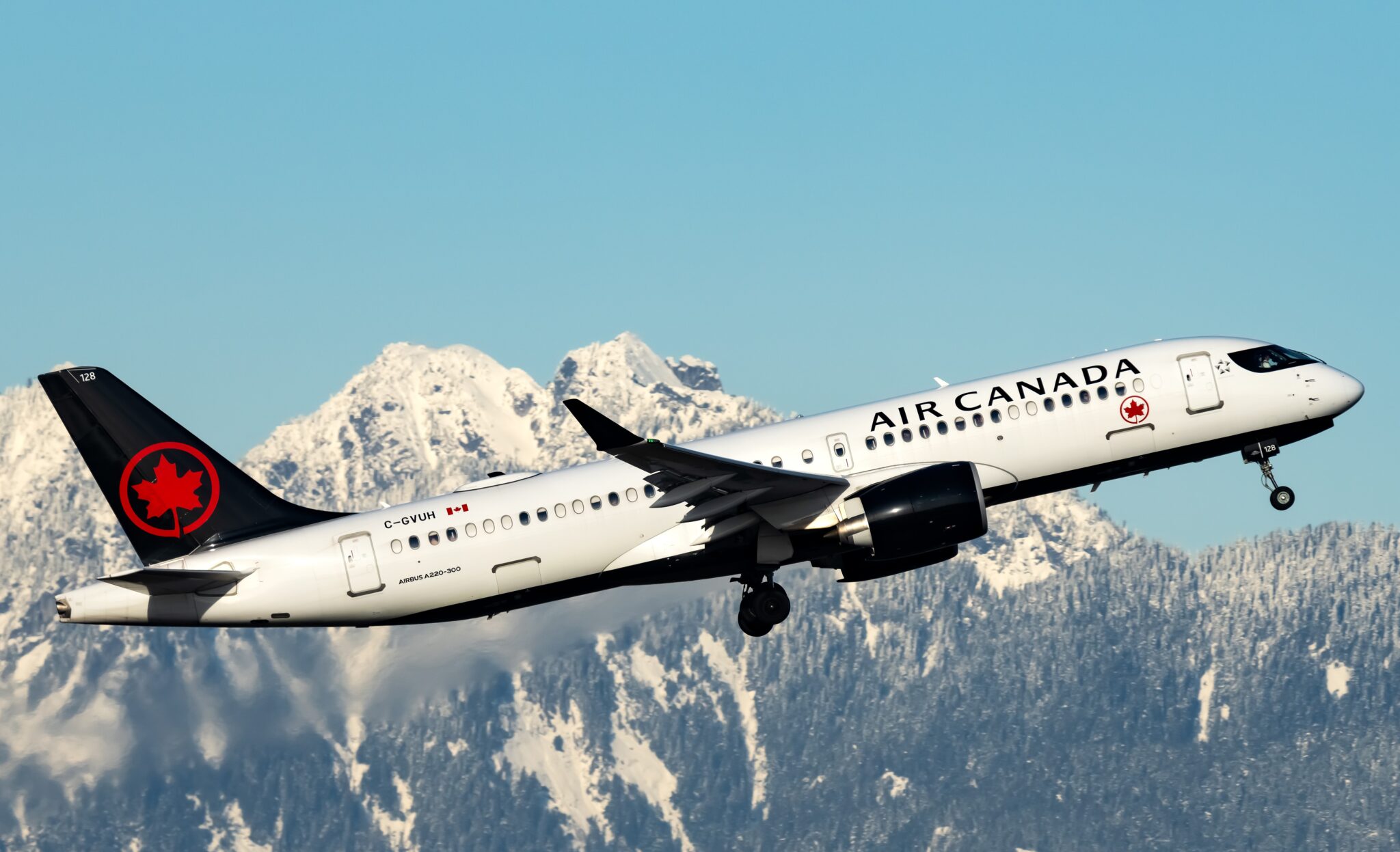


Air Canada’s shutdown plan throws fuel onto an already heated dispute. The parties are continuing to talk, but the preparation of contingency measures suggests a total shutdown of the airline by next week is a real and growing possibility.
Air Canada is warning of an “orderly shutdown” of its flying program — potentially before the end of the week. On Monday morning, the flag carrier issued a strongly worded statement in response to a long-running labor dispute.
It said talks with the Air Line Pilots Association (ALPA) are “nearing [an] impasse,” citing the organization’s “excessive wage demands.” Meetings between the union and the airline are ongoing, but the company warned that the parties remain far from an agreement.
Unless a deal is reached, from Sunday, September 15, either party may issue a 72-hour strike or lock-out notice. The company says this would trigger its wind-down plan.
Bosses at Air Canada and its leisure subsidiary Air Canada Rouge are preparing to “gradually suspend flights” over three days. It says these preparations — which affect around 670 daily departures — are now being finalized.
The airline advises customers to defer imminent travel, with a flexible change policy in place.
If realized, the move would see most of Air Canada’s operations suspended, with a total shutdown effective within three days of the start of the winding down period.
Michael Rousseau, Air Canada President and CEO described the prospect of an orderly shutdown as an “extremely difficult decision” that was considered in response to an “increasingly likely work stoppage” among ALPA pilots. He said it “is the only responsible course available” to the airline.
“Air Canada believes there is still time to reach an agreement with our pilot group, provided ALPA moderates its wage demands which far exceed average Canadian wage increases,” Rousseau added.
The parties have been in discussions for around 15 months. Despite reaching a tentative position on many elements of a new collective agreement, wages have been a sticking point. ALPA represents more than 5,200 pilots at the Canadian flag carrier.
For its part, ALPA says that Air Canada pilots are working under pay rates and quality-of-life provisions negotiated in 2014, with improvements long overdue.
Last month, the union said its members are “prepared for any outcome,” citing a $5 million grant from ALPA’s war chest. On August 22, its pilots voted for strike action if no agreement is reached.
The organization has created a website outlining its key demands and developments.
More than 110,000 people fly with Air Canada on an average day. While regional Air Canada Express flights will continue to operate during any shutdown, these represent only around 20% of the company’s passengers. Notably, many Express travelers rely on connections with Air Canada’s mainline division, which would not be operating.
Jay Shabat, Airline Weekly senior analyst highlighted the potential impact of any stoppage: “The only silver lining to Air Canada’s labor unrest is that it comes after the airline’s peak summer season, when it tends to produce an outsized share of its annual profits. That said, it will surely lose valuable international traffic to rivals amid the uncertainty about its operations.”
Even if a settlement with ALPA is reached, Air Canada predicts that it will take between seven and ten days for its operations to return to normal after a complete shutdown.
Air Canada has set up a dedicated webpage for affected customers but warned of limited alternative travel options. “Unfortunately, seats on other carriers are expected to be very limited across all airlines, and refunds or accepting a future travel credit, or agreeing to travel on Air Canada at a later date, may be the only options available,” the carrier said in a statement.
What am I looking at? The performance of airline sector stocks within the ST200. The index includes companies publicly traded across global markets including network carriers, low-cost carriers, and other related companies.
The Skift Travel 200 (ST200) combines the financial performance of nearly 200 travel companies worth more than a trillion dollars into a single number. See more airlines sector financial performance.